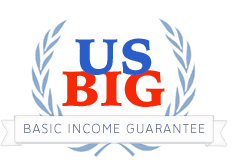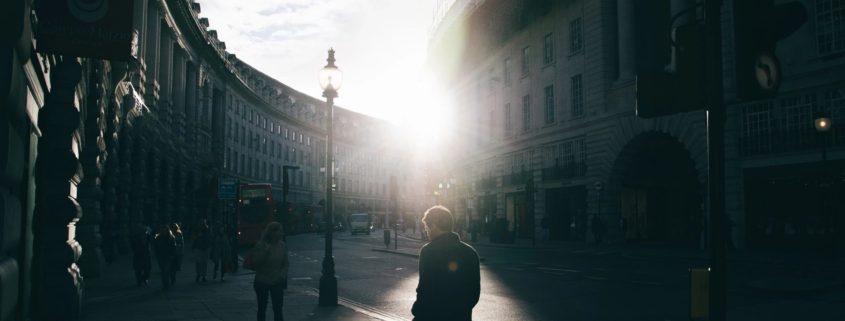Yang’s Freedom Dividend: What’s It Got to do with Freedom?
Yang’s Freedom Dividend: What’s It Got to do with Freedom?
By: Michael Anthony Lewis (Associate Professor of Social Work, CUNY)
Anyone following Andrew Yang’s attempt to win the Democratic Presidential Primary knows that a key part of his platform is the Freedom Dividend. This is his name for what others call a universal basic income (UBI) or simply a basic income (BI). BI is usually defined as “an amount of money paid, unconditionally and periodically, on an individual basis, without a means test or work requirement” (https://basicincome.org/basic-income/). Yang’s version would only go to U.S. citizens over 18 years old.
Why call BI a Freedom Dividend? One reason, as I understand it, is that Yang believed the name would have more appeal to folks in a nation which abhors handouts but likes the idea of liberty. After all, that most controversial of Founding Fathers, Thomas Jefferson, declared in the Declaration of Independence that we’re a nation committed to “life, liberty, and the pursuit of happiness,” excluding, of course, women, indigenous peoples, and enslaved blacks; but we’ll leave those issues for another post.
Besides PR, are there other reasons to tie freedom to BI? Apparently so, since two of BI’s most prominent defenders, Philip Van Parijs (see Real Freedom for All) and Karl Widerquist (see Independence, Propertylessness, and Basic Income) do so on the basis of different notions of freedom. Van Parijs’ and Widerquist’s works are philosophically sophisticated and aren’t for the faint of heart. I too think there are connections between BI and freedom, and although my ideas overlap with Van Parijs’ and Widerquist’s, not being a philosopher, my approach probably comes across as a little more crass. The relevance of freedom to BI can be seen, perhaps surprisingly, by first considering those self-proclaimed champions of freedom: free market libertarians.
Free market libertarians tend to focus on how government curtails our freedom. To see what I mean, suppose Becca and Josh work for a living; by work, I mean sell their labor in the formal economy in return for a wage. Suppose Greg isn’t working but, instead, gets his income in the following way. Becca and Josh are required to pay income taxes to the federal government, required in the sense that if they don’t pay up, they risk being fined, jailed, or both. The government then transfers some of that tax revenue, as income, to Greg. The entire U.S. welfare state is made up largely of such transfers. These transfers amount to curtailment of freedom, as libertarians see it, because Becca and Josh ought to decide how to spend their money. They shouldn’t be forced, under threat of fines or prison, to spend it in ways they may not want to.
The point about fines or prison raises another way government can curtail freedom. If someone breaks the law, government can punish them by requiring payment of a fee. If they fail to pay up, they could end up in jail. And if someone commits a serious enough crime, the fine could be skipped and that person sent straight to jail. Basically, government can tell us what to do, as well as what not to do, and if we don’t follow its commands, folks with guns, authorized to use deadly force, may show up at our doors.
The taxing, fining, and jailing/imprisoning power of government is awesome, and free market libertarians are right to focus on this. I don’t think everything they say about this power is true; but they’re right to keep the wide reach of government salient in our minds. But free market libertarians also have a troubling blind spot—they fail to sufficiently appreciate how employers can also curtail people’s freedom. This is one of the key insights of Widerquist’s notion of freedom as the power to say no (see Independence, Propertylessness, and Basic Income). It’s also an insight with roots in Marx.
The U.S. economy, as are most of those in the world today, is capitalist. One of the hallmarks of capitalism is wage labor. That is, those without an alternative source of income are under great pressure to find someone to buy their labor or, as Marxists say, labor power. That’s because selling our labor in return for a wage is how most of us get access to the resources we need to survive. And that gives employers a lot of power over us, power that can be used to curtail our freedom. We may want to work for higher wages or under less dangerous or demoralizing conditions, but if our only alternative to working is begging, stealing, or starving; we may feel we have no choice but to work for whatever wage or under whatever conditions our employer offer. And if that wage isn’t high enough, we may need to rent ourselves out to another employer or two, facing their infringement of our freedom as well.
Being forced to work for a wage or under conditions you don’t want isn’t the same as being forced to pay taxes or fines. But the threat of destitution is as real as the threat of jail or imprisonment. Far too many free market libertarians fail recognize this important point. A BI set at a high enough level could undermine employers’ ability to curtail our freedom. That’s because, by providing an alternative to selling labor in order to survive, such a BI would allow us to work more on our terms instead of employers’.
There’s another connection between BI and freedom. In his book Real Freedom for All,
Van Parijs defines freedom as roughly “the ability to do whatever it is one might want to do.” A large enough BI would free people up to spend more time doing things other than selling their labor. Some of that time could be spent caring for children, friends, or other relatives. There could also be more time spent doing things more colloquially thought of as leisure, such as playing sports, pursing hobbies, etc.
Yang is calling for a BI of $12,000 a year. I don’t know if that would be enough to have the freedom enhancing effects I spoke of above. But, in principle, connecting BI to freedom is more than a sales pitch to get those skeptical about the welfare state to support the proposal. Thomas Jefferson and free market libertarians are right to sing the praises of freedom. But freedom isn’t just about protecting us from government. It’s also about creating conditions which would allow us to avoid submitting to the whims of employers, as well as to do whatever we might want to do.




Trackbacks & Pingbacks
[…] Yang’s Freedom Dividend: What’s It Got to do with Freedom? Michael Lewis, USBIG.net, January 2020 […]
Leave a Reply
Want to join the discussion?Feel free to contribute!